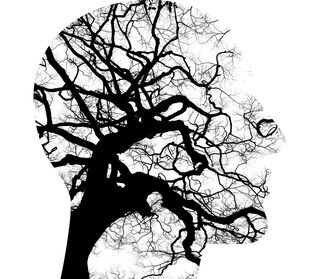Psychosis
Psychotherapy for Schizophrenia: An Underutilized Treatment
Few schizophrenia patients receive psychotherapy, despite its effectiveness.
Posted November 24, 2022 Reviewed by Vanessa Lancaster
Key points
- Psychotherapy continues to play an important role in the management of schizophrenia.
- Many forms of psychotherapy exist, from psychodynamic therapy to cognitive remediation like cognitive enhancement therapy.
- A small percentage of schizophrenia patients are offered psychotherapy, which for some can make the difference between a poor and good outcome.
Schizophrenia is the classic psychotic disorder and has long been considered the most severe form of mental illness. It is a problem that afflicts roughly 1 out of 100 people around the world. Since the development of the first antipsychotic drugs in the 1950s, a gradual shift away from psychotherapeutic and toward biological methods of treatment has ensued.
Nevertheless, psychotherapy continues to play an important role in the management of the disease, and there has been a resurgent interest in psychotherapeutic treatments for schizophrenia in the past two decades. Here, I will briefly review the psychodynamic approach to schizophrenia and add some comments on nonpsychodynamic therapies and the importance of a pluralistic model.

The Psychodynamic Approach
The psychodynamic treatment of schizophrenia has a long and rich history dating to the early 20th century. Although Freud was initially pessimistic about the possibility of treating schizophrenia, later modifications to psychoanalytic technique by analysts such as Sullivan, Fromm-Reichmann, and Arieti opened the door to a theoretically-informed approach to psychotherapy with these patients. Psychoanalytic hospitals such as Chestnut Lodge and the Menninger Clinic opened as centers for the psychodynamic treatment of schizophrenia.
Psychodynamic approaches to schizophrenic illness tend to share some common features. These include:
- A focus on the early environment of the patient, in particular, the causative role of anxiety.
- The meaning and symbolism of psychotic symptoms.
- An emphasis on the relationship between patient and therapist, including transference and countertransference reactions.
- The etiological role of the psychological factors (as opposed to the view that the disorder merely causes psychological dysfunction).
- A long-term (or longer-term) approach to psychotherapy.
What is the evidence for the psychodynamic treatment of schizophrenia? The literature is filled with anecdotes and case reports highlighting the successful treatment of individual patients. Perhaps the best-known example of such writing is the semi-autobiographical novel of one of Fromm-Reichmann's patients, the 1964 bestseller I Never Promised You a Rose Garden (Greenberg, 1964). One of my patients, a young man with paranoid-type schizophrenia whom I have been treating for five years, wrote the following about our psychodynamically-oriented psychotherapy:
The work didn't click for me until years in. Every psychotic experience was always preceded by a split second shift in my emotional state. Over time, I was able to feel this window open up … and my experiences slowly dissipated. I still experience psychotic symptoms but at a much less frequent rate. Every session a new layer of what has happened to me is unraveled through therapy. Almost every time a link has been discovered, I subsequently experience less symptoms.
These types of case reports notwithstanding, there exists a dearth of high-quality, modern research on the psychodynamic psychotherapy of schizophrenia. The vast majority of funding for schizophrenia research in recent years has been devoted to biological investigation and therapies.
Silvano Arieti, perhaps the greatest of psychodynamic theorists on schizophrenia (see Ruffalo, 2022), beautifully summarized the effect of psychotherapy:
With many patients who receive intensive and prolonged psychotherapy we reach levels of integration and self-fulfillment that are far superior to those prevailing before the patient became psychotic. As I have said elsewhere, this does not mean that all the troubles of the patient will be over, even after successful psychotherapy. We must repeat once again the famous words of Frieda Fromm-Reichmann that we cannot promise a rose garden. It would be utopian to believe that the promise of life is a life comparable to a rose garden, utopian for the patient and utopian for us, who want to be his peers. But I think it is not utopian to promise to the patient what we promise to ourselves, his peers, sooner or later in life: to have our own little garden (Arieti, 1974).
Nonpsychodynamic Therapies
A host of nonpsychodynamic therapies for schizophrenia have been developed, including cognitive behavioral therapy (CBT); cognitive remediation therapies, such as cognitive enhancement therapy (CET); existential and humanistic therapies; and supportive psychotherapy. Given space limitations, I will comment only briefly on CBT and CET.
The evidence for CBT's effectiveness in schizophrenia is mixed, and substantial controversy has developed surrounding its use, particularly in the United Kingdom. Nonetheless, it remains perhaps the most popular form of therapy offered for schizophrenia around the world. Early applications of CBT to schizophrenia focused mainly on the negative symptoms of the disease; later modifications have attempted to also treat the positive symptoms, such as delusions and hallucinations.
A promising type of cognitive remediation, CET, was developed at the University of Pittsburgh in the 1990s by Gerard Hogarty and Samuel Flesher. It is a form of treatment that aims to help schizophrenia patients improve subtle cognitive skills required for socialization. Substantial evidence accumulated over the past two decades has shown it to be an effective form of psychotherapeutic treatment, especially for the negative symptoms of the disease, though its availability is not yet widespread.
The Importance of Pluralism
Schizophrenia is perhaps the most complex disease known to man, and in any given case, there is a complicated interplay between biological, psychological, and social factors. For this reason, a comprehensive approach to treatment is needed to produce the best result. While antipsychotic medications are effective in reducing the positive symptoms of schizophrenia, treatment response is often incomplete, and many patients continue to suffer indefinitely. Unfortunately a small percentage of schizophrenia patients today are offered psychotherapy, which for some can make the difference between a poor and good outcome.
While it is certainly true that psychotherapy alone cannot cure schizophrenia, it is equally true that for many patients, psychotherapy is the key to finding meaning, reclaiming a sense of personal satisfaction, and improving the patient’s general life situation.
To find a therapist near you, visit the Psychology Today Therapy Directory.
References
Arieti S. (1974). An overview of schizophrenia from a predominantly psychological approach. American Journal of Psychiatry, 131(3), 241–249. https://doi.org/10.1176/ajp.131.3.241
Greenberg, J. (1964). I never promised you a rose garden. Henry Holt and Company.
Ruffalo, M. L. (2022). Remembering Silvano Arieti 40 years later. American Journal of Psychotherapy, 75(3), 103-107. https://doi.org/10.1176/appi.psychotherapy.20210039




